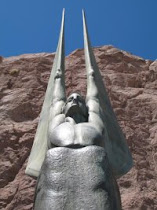So, as I mentioned in the last post, I went out of town for the weekend with the main purpose of visiting with friends and playing board games. One of my goals for these meetings is to play as many "new-to-me games" as possible. It's one of the few opportunities I have to try games before playing them. This time I achieved that goal pretty well. I played 19 different titles, 12 of which I'd never played before. Here are a few highlights:
Strozz i
i - Reiner Knizia is easily my favorite game designer. This new one of his is a more layered version of Medici, but the layers add more complexity without really adding to the enjoyment. The bidding is mostly a simplified version of Ra. It's a solid enough game, but there was nothing there that really grabbed me. If it weren't for the sweet, sweet bacon, this game would have little to offer.
Steel Driver - I knew nothing about this game going in except it was by Martin Wallace. That was enough to bias me into thinking it would be heavier than it was. Players bid for controlling shares in different railroads, then expand them across the U.S. We had a significant rule wrong which greatly affected the scoring, but I still enjoyed it quite a bit.
Brass -

This was probably the top game I was hoping to play. I had already bought it based on reviews, but I wanted to be taught by players who were familiar with it. The theme recreates the industrial revolution in Lancashire, England. Players develop the coal, iron, and cotton industries as well as canals and rails to deliver goods. There's a whole lot to learn and a lot of little exceptions, but the play itself is pretty straightforward. I liked it, but didn't love it. However, I'm eager to play again now that (I think) I've got the rules down. Hopefully, I can teach it to my local group and we can attack the learning curve together.
Spekulation - This was my favorite game of the Spiele. It's a simple buy and sell shares game in an unpredictable stock market. You start to think you can actually predict the market, and then all your plans crumble, just like the real thing. A friend in the group had made his own custom copy of the game, since it is out of print, and his graphic design really added to my enjoyment of the game. I may have to make my own copy soon.
Le Hav re
re - I'm glad to have played this one, but I didn't really care for it. The game just took waaaay too long. Setting up an economic system where every turn you can buy a little bit more so next turn you can produce a little bit more so next turn you can buy a little bit more, etc. just didn't do it for me. I see the similarities between this and Agricola, but it didn't seem worth the effort. Perhaps another play (with my hard-earned better understanding) would be more fun, but I'm not sure if I'm willing to make the effort.
Dominion - This game wasn't new to me, but we played with new facets. I loved playing with the random set up (which I hadn't done before) and I *really* loved playing it so quickly (even though I was the slowest player). I can't wait to bring this out again for my group and show them it can be done in half an hour.
Other new games played: 2 de Mayo, Bounce It In, PowerBoats, Jet Set, Ringel Rangel, Aton, Roll Through the Ages.
Older games played: Ingenious, Hey, That's My Fish!, Amun-Re, Metropolys, Schnappschen Jagd, Harry's Grand Slam Baseball.
Also, I was able to record a podcast with my friend Mark Johnson, which I will post a link to when it becomes available. We talked about Classic (with a capital C) games: what are they, what makes one, and what modern games might earn the title? It was a fun discussion, hopefully it will prove fun to listen to as well.


































